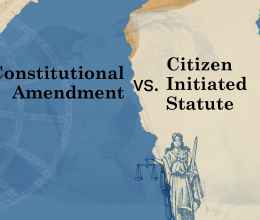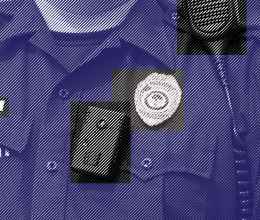Today, Governor Mike DeWine signed House Bill 29, legislation that will remove many of the financial barriers that lead to driver’s license suspensions. With the adoption of this policy, Ohio becomes the 25th state to move away from debt-related penalties.
In Ohio, one million drivers currently have suspended driver’s licenses. Approximately 60 percent of these suspensions are the result of issues other than dangerous driving. During the last week of the 135th General Assembly, lawmakers amended provisions from Senate Bill 37 into House Bill 29, going a long way toward ensuring that a person’s ability to pay a fine or fee does not determine whether they are free to drive.
“We are grateful to Senate Bill 37’s co-sponsors, Senator Lou Blessing and Senator Catherine Ingram, for their dedication to eliminating debt-related driver’s license suspensions,” said Susan Jagers, Director, Ohio Poverty Law Center. “We also thank Senate Judiciary Committee Chairman Nathan Manning for shepherding the bill through the process at the of end of the legislative session. With the Governor’s signature on the bill, the work now begins to implement the new policy and put Ohioans back in the driver’s seat.”
Upon the effective date, license suspensions for failure to pay a court fine or fee will be removed both retroactively and automatically, without imposition of reinstatement fees. This will help hundreds of thousands of Ohioans get their licenses back and dramatically reduce future suspensions.
“A hard-fought victory, years in the making, HB29 has become law because of the work of advocates from across the state and beyond,” said Priya Sarathy Jones, co-executive director of The Fines and Fees Justice Center. “Ohio becomes the tipping point for ending this economically harmful and counterproductive practice. In half the country, in both red and blue states, policymakers have recognized that your financial circumstances should never determine your freedom to drive. The Fines and Fees Justice Center is deeply grateful to the organizations, communities, and directly impacted Ohioans who earned this victory, and we are eager to continue working with legislators and advocates across the country to drive policy change that impacts real people’s lives.”
A large and diverse coalition of advocates and impacted Ohioans came together in support of the legislation over the last two years. Throughout the Senate and House committee process, nearly 40 witnesses ranging from legal aid societies to employment advocates to business leaders to conservative and taxpayer groups submitted proponent testimony.
“For years, debt-related driver’s license suspensions blocked thousands of Ohioans from finding stable jobs and businesses from accessing quality talent," said Maha Jweied, CEO, the Responsible Business Initiative for Justice (RBIJ). “Thanks to the leadership of the legislature, advocates, and Governor DeWine, House Bill 29 removes these unnecessary barriers to employment and hiring — a significant win for business and communities. We applaud this impactful legislation that will help keep Ohioans on the road, bolster the state’s workforce, and break costly cycles of poverty and punishment.”
Advocates also wish to thank House Bill 29 co-sponsors, Representative Darnell Brewer and Representative Latyna Humphrey, for their efforts to create a fair and just system for parents who need to drive in order to meet their child support obligations. Their willingness to work with the sponsors of Senate Bill 37 to expand the provisions of their legislation is appreciated and should not go unnoticed.
“House Bill 29 is a monumental bill that will benefit Ohio workers, employers, and communities and change hundreds of thousands of lives,” said Lauren Krisai, executive director of Justice Action Network. “The overwhelming amount of support this bill received from the General Assembly proves that bold, bipartisan criminal justice reform centered on improving workforce participation and economic outcomes is wildly popular on both sides of the aisle. We’re thrilled that Governor DeWine signed House Bill 29 into law and look forward to its implementation.”
The following provisions were included in House Bill 29:
- Eliminates the driver’s license suspension for failure to pay a court fine or fee.
- Applies the removal of license suspensions for failure to pay a court fine or fee both retroactively and automatically, without imposition of reinstatement fees.
- Removes the possible penalty of a driver’s license suspension for a drug abuse offense, unless the offense relates to causing others to use, manufacture, or traffic and the offender used a vehicle to further the commission of the offense.
- Reduces the lookback period for driving without insurance offenses to be considered repeat offenses from five years to one year.
- Eliminates school truancy as a reason for license denial or suspension.
- Authorizes a person whose driver’s license is suspended for failure to pay child support to file a motion with a court for limited driving privileges in all circumstances, not just when the motion is made during contempt proceedings as under current law.
“House Bill 29 is smart, practical policy that will enable Ohioans to reinstate their licenses, drive to work, take their children to school, and participate more fully in their communities,” added Patrick Higgins, Policy Counsel for the ACLU of Ohio. “A person's ability to pay should not determine whether they are free to drive. We thank lawmakers for passing this legislation and are grateful that Governor DeWine signed it into law.”
With House Bill 29 being signed and filed by Governor DeWine today, the bill’s effective date is expected to be April 10, 2025. Advocates look forward to working with the Ohio Bureau of Motor Vehicles, other state agencies and various organizations across the state to assist with streamlining the license restoration process and providing information to Ohioans about these changes to the law.
“This bill takes a significant step to giving more people a chance to work, which also provides businesses with an expanded pool of workers,” said Jill Rizika, CEO of Towards Employment. “Our community - businesses, workers, and families - benefit when more people have more opportunity to participate in Ohio’s economy, earning the money necessary to resolve existing debt and build careers. We thank all those involved in the passage of House Bill 29, and we are ready to help put Ohioans back on the road to a productive future.”
Information on the number of debt-related driver’s license suspensions and fines owed by legislative district can be found here.
Organizations supporting the passage of House Bill 29 include:
ACLU of Ohio
Americans for Prosperity – Ohio
Cuyahoga County Public Defender’s Office
Fines and Fees Justice Center
Justice Action Network
Legal Aid of Southeast and Central Ohio
Levin College of Public Affairs and Education, Cleveland State University
National Legal Aid & Defender Association
Neighborhood Connections
Ohio Poverty Law Center
Policy Matters Ohio
Prison Fellowship
R Street Institute
Responsible Business Initiative for Justice
The Buckeye Institute
The Legal Aid Society of Cleveland
Towards Employment
United Way of Greater Lorain County
United Way of Summit & Medina








